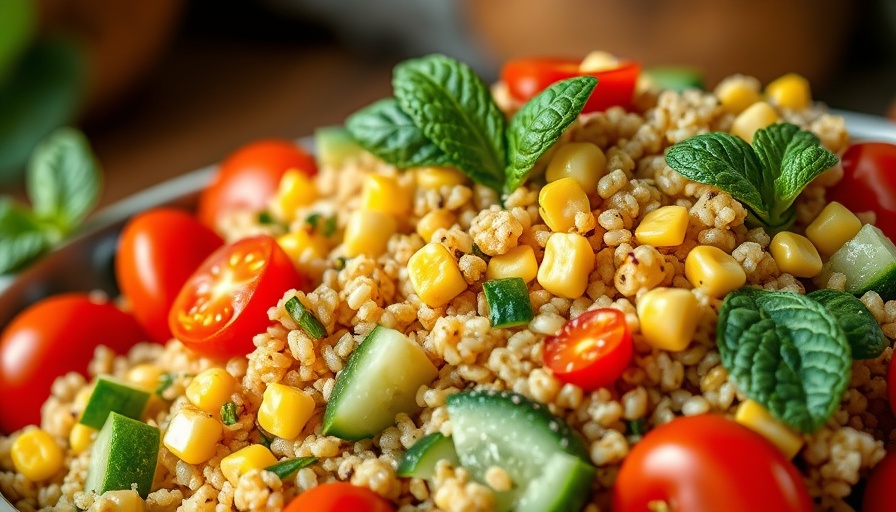
Understanding Ulcerative Colitis and Its Management
Ulcerative colitis (UC), a type of inflammatory bowel disease (IBD), affects thousands of men, particularly those aged 35 to 55. The condition can lead to painful symptoms and severe complications if not managed correctly. However, emerging research highlights that dietary changes, particularly a shift to a plant-based diet (PBD), could significantly improve disease management and remission rates. In fact, studies suggest that a plant-based diet can be 98% effective in keeping UC patients in remission, a remarkable statistic that surpasses many traditional medical treatments.
Why Plant-Based Diets Matter
One of the critical findings regarding UC management is the role that dietary sulfur plays in the disease's progression. Meat, rich in sulfur-containing amino acids, may exacerbate inflammatory processes in the gut. Research indicates that reducing the intake of these amino acids through a plant-based diet can lead to substantial health improvements. In a recent study, ulcerative colitis patients switched to a diet rich in whole plant foods and experienced a fourfold improvement in their symptoms without changing their medications. Such evidence showcases the potential of diet as a powerful tool in managing this painful condition.
Real-World Impact: Patient Experiences
Consider the case of a 36-year-old man diagnosed with ulcerative colitis after a low-carb diet caused him to lose not just weight but his health. Upon shifting to a plant-based diet, his symptoms resolved, and he achieved remission entirely without the use of medication. This individual story reflects a growing body of case reports advocating for dietary interventions in treating IBD, thereby inspiring further scientific exploration.
Insights from Research
Japanese gastroenterologists have spearheaded significant research into the effects of diet on IBD management, concluding that the lack of a suitable diet is a major issue facing patients. Their findings reveal that adopting a plant-based lifestyle leads to remarkable remission rates in Crohn’s disease and underscores how diet can be intrinsic to managing digestive health.
Actionable Takeaways for Men
So, what does this mean for you? If you're a man aged 35-55 dealing with ulcerative colitis or wanting to manage your health proactively, consider evaluating your current diet. Prioritize meals rich in fiber, such as fruits, vegetables, whole grains, and legumes, while reducing meat intake. These dietary shifts can not only help keep ulcerative colitis in remission but also promote overall well-being, aligning well with any fitness and health goals you may have.
Conclusion: Empowering Yourself Through Nutrition
The relationship between diet and health outcomes is clear, particularly for conditions like ulcerative colitis. Embracing a plant-based diet could be one of the most impactful changes you make. If you're inspired to explore this dietary path further, consult a healthcare professional, nutritionist, or explore meal planning resources that emphasize men's nutrition. Take charge of your health today for a better tomorrow.
 Add Row
Add Row  Add
Add 




Write A Comment